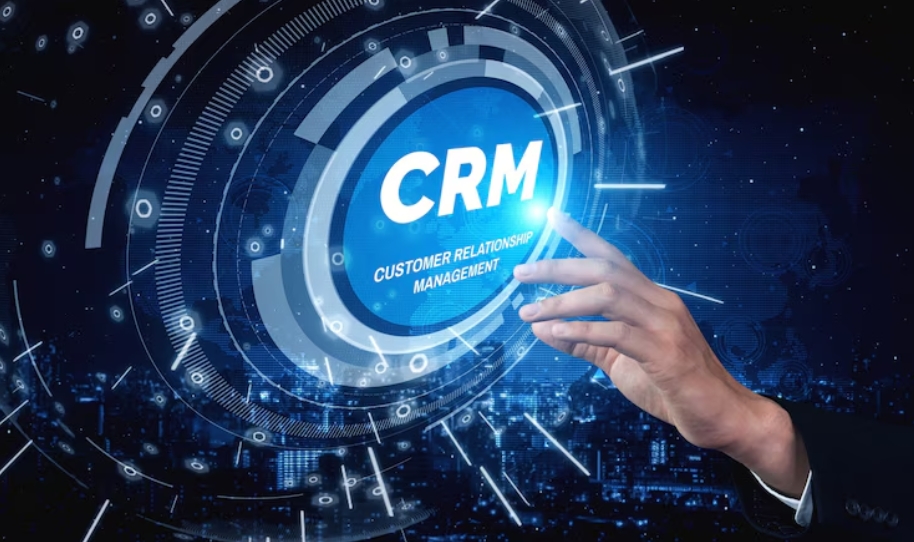Why Data Quality Is Important for CRM Success

Why Data Quality is the Backbone of CRM Success
In today’s customer-centric business landscape, large and small organizations are turning to CRM (Customer Relationship Management) systems to streamline and enhance their interactions with customers. Most firms today have invested in sophisticated CRM systems that help track customer information. These tools automate customer service, retail transactions, and sales processes while storing valuable customer insights. However, despite the advancements in CRM technology, one recurring challenge remains: data quality.
A successful CRM implementation is only as effective as the data it holds. Poor data—especially during data migration from outdated systems—can lead to flawed or incomplete customer profiles, ultimately compromising the system’s value.
The Critical Role of Data Quality in CRM
The cornerstone of any CRM initiative is high-quality data. Without accurate, consistent, and up-to-date information, customer relationships deteriorate and CRM systems fall short of delivering ROI. Trustworthy CRM data should be comprehensive, consistently formatted, and free from errors or duplicates. Clean data enables businesses to provide tailored customer experiences, drive engagement, and make better decisions.
What Defines Good CRM Data?
CRM data quality refers to the accuracy, completeness, consistency, and timeliness of customer information within the system. High-quality CRM data:
- Is current and regularly updated
- Contains no duplicates
- Is consistent across records and fields
- Enables precise segmentation for personalized communication
However, common issues such as duplicate entries, outdated contacts, and non-standardized formats still plague many organizations, resulting in fragmented customer views.
Common CRM Data Challenges
Poor CRM data management leads to several business risks and inefficiencies:
Inaccurate Customer Insights
Faulty data distorts reporting and analytics, leading to misguided strategies and missed opportunities.
Disconnected Customer Journeys
Inconsistent data across departments and channels results in disjointed customer experiences and weak support.
Ineffective Sales and Marketing Efforts
Sales and marketing teams rely heavily on CRM data. Inaccuracies can lead to wasted effort, lower conversion rates, and lost revenue.
Reduced Customer Satisfaction and Retention
Errors such as misused names or irrelevant content damage customer trust, making it difficult to build loyalty or retain clients.
The Benefits of High-Quality CRM Data
Investing in clean, accurate data pays dividends across all customer-facing functions:
- Improved Communication: Personalized, timely outreach improves engagement.
- Integrated Operations: Breaking down data silos fosters collaboration across teams.
- More Effective Campaigns: Better lead scoring and segmentation boost conversion rates.
- Reliable Forecasting: Clear, accurate data ensures dependable sales performance metrics.
Key Factors Affecting CRM Data Quality
Several internal factors influence the overall quality of CRM data:
Manual Data Entry Errors
Typos, missing fields, or duplicate records from human input can lead to long-term issues.
Lack of Integration Between Systems
Disparate tools and platforms often store isolated data, making it difficult to maintain a single customer view.
Weak Data Governance
Without formal policies, different departments manage data inconsistently, reducing overall reliability.
Outdated or Redundant Records
As customer details change, failure to regularly update information leads to cluttered and unusable data sets.
Best Practices for Improving CRM Data Quality
To maintain high standards in your CRM database, consider the following best practices:
Regular Data Audits and Cleansing
Schedule routine checks to identify and fix duplications, inaccuracies, and outdated records. Automate where possible using dedicated data cleansing tools.
Implement Data Validation Rules
Set rules at the point of data entry to ensure consistency in formats, required fields, and logical ranges.
Automate Data Enrichment
Use automation tools to update and enhance customer data, minimizing manual effort while improving accuracy.
Train for Data Stewardship
Encourage employees to treat data as a shared asset. Training builds awareness and ownership over data quality responsibilities.
Trends Shaping the Future of CRM Data Management
AI and Machine Learning Integration
Artificial intelligence is reshaping how CRM data is managed. AI tools can detect errors, enrich records, and predict customer behavior more accurately than ever.
Predictive Data and Automation
Real-time updates and predictive analytics allow businesses to act quickly and tailor strategies before customers even express a need.
Enhanced Customer Experience Tools
As businesses invest in customer experience platforms, aligning CRM data processes ensures consistent and personalized engagement across every touchpoint.
Conclusion
Data quality is no longer a backend concern—it’s a strategic necessity. A CRM system thrives on precise, consistent, and timely data. When data is clean, businesses gain better insights, build stronger relationships, and improve operational efficiency.
To maximize CRM ROI, organizations must invest in robust data governance, regular cleansing, integration tools, and training programs. Whether you’re migrating to a new system or optimizing an existing one, prioritizing data quality lays the foundation for lasting success.




